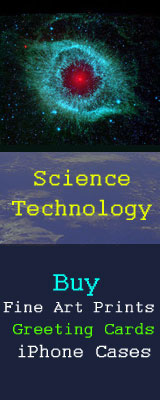.
Herbert Busemann
Herbert Busemann (1905 – 1994) was a German-American mathematician specializing in convex and differential geometry. He is the author of Busemann's theorem in Euclidean geometry and geometric tomography. He was a member of the Royal Danish Academy and a winner of the Lobachevsky Medal (1985), the first American mathematician to receive it.[1] He was also a Fulbright scholar in New Zealand in 1952.[2]
Biography
Herbert Busemann was born in Berlin to a well to do family. His father was one of the directors of Krupp, where Busemann also worked for several years. He studied at University of Munich, Paris, and Rome. He defended his dissertation in University of Göttingen in 1931, where his advisor was Richard Courant. He remained in Göttingen as an assistant until 1933, when he escaped Nazi Germany to Copenhagen (he had a Jewish grandfather).[3] He worked at the University of Copenhagen until 1936, when he left to the United States. There, he got married in 1939 and naturalized in 1943. He had temporary positions at the Institute of Advanced Studies, Johns Hopkins University, Illinois Institute of Technology, Smith College, and eventually became a professor in 1947 at University of Southern California.[4] He advanced to a distinguished professor in 1964, and continued working at USC until his retirement in 1970. Over the course of his work at USC, he supervised over 10 Ph.D. students.
He is the author of six monographs, two of which were translated into Russian. According to the Los Angeles Times, the Lobachevsky Medal he received in 1985, was honored with 2,000 roubles for his "innovative book" titled The geometry of geodesics (Acaemic Press, 1959).[5]
Busemann was also an active mathematical citizen. At different times, he was the president of the California chapter of Mathematical Association of America, and a member of the council of the American Mathematical Society.[6]
Busemann was also an accomplished linguist; he was able to read and speak in French, German, Spanish, Italian, Russian, and Danish. He could also read Arabic, Latin, Greek and Swedish.[7] He traslated a number of papers and monograph, most notably from Russian, a rare language at the time. He also painted and had several public exhibitions.[8] He died in Santa Ynez, California on February 3, 1994, at the age of 88.[9]
See also
* Busemann function
Books
* Introduction to algebraic manifolds, Princeton University Press, 1939.
* with Paul J. Kelly: Projective geometry and projective metrics, Academic Press, 1953, Dover 2006.
* Convex Surfaces, Interscience 1958, Dover, 2008.
* Geometry of Geodesics, Academic Press 1955, Dover, 2005.
* Metric methods in Finsler spaces and in the foundations of geometry, Princeton University Press, Oxford University Press, 1942.
* with Bhalchandra Phadke: Spaces with distinguished geodesics, Dekker, 1987.
* Recent synthetic differential geometry, Springer 1970.
Notes
1. ^ LA Times, 1985.
2. ^ LA Times, 1952.
3. ^ Gardner, 1994.
4. ^ LA Times, 1994.
5. ^ LA Times, 1985.
6. ^ LA Times, 1952.
7. ^ LA Times, 1952.
8. ^ LA Times, 1976.
9. ^ LA Times, 1994.
References
* Reinhard Siegmund-Schultze, Mathematicians Fleeing from Nazi Germany: Individual Fates and Global Impact, p. 107, Princeton University Press, 2009.
* Richard J. Gardner, Geometric tomography, p. 309, Cambridge University Press, 1994.
* "Professor as SC plans study in New Zealand", Los Angeles Times, 6 January, 1952, p. 22.
* "Professors write Geometry Textbook", Los Angeles Times 10 August, 1953, p. 1.
* "Herbert Busemann, Oil Painings", Los Angeles Times, 18 January, 1976, p. M59.
* Lee Dembart, "An Unsung Geometer Keeps to His Own Plane", Los Angeles Times, 14 July, 1985, p. H3.
* "Herbert Busemann; USC Emeritus Professor of Mathematics", Los Angeles Times, 19 March, 1994, p. 24.
External links
* Herbert Busemann at the Mathematics Genealogy Project
* Herbert Busemann's biography (in Spanish).
Retrieved from "http://en.wikipedia.org/"
All text is available under the terms of the GNU Free Documentation License


